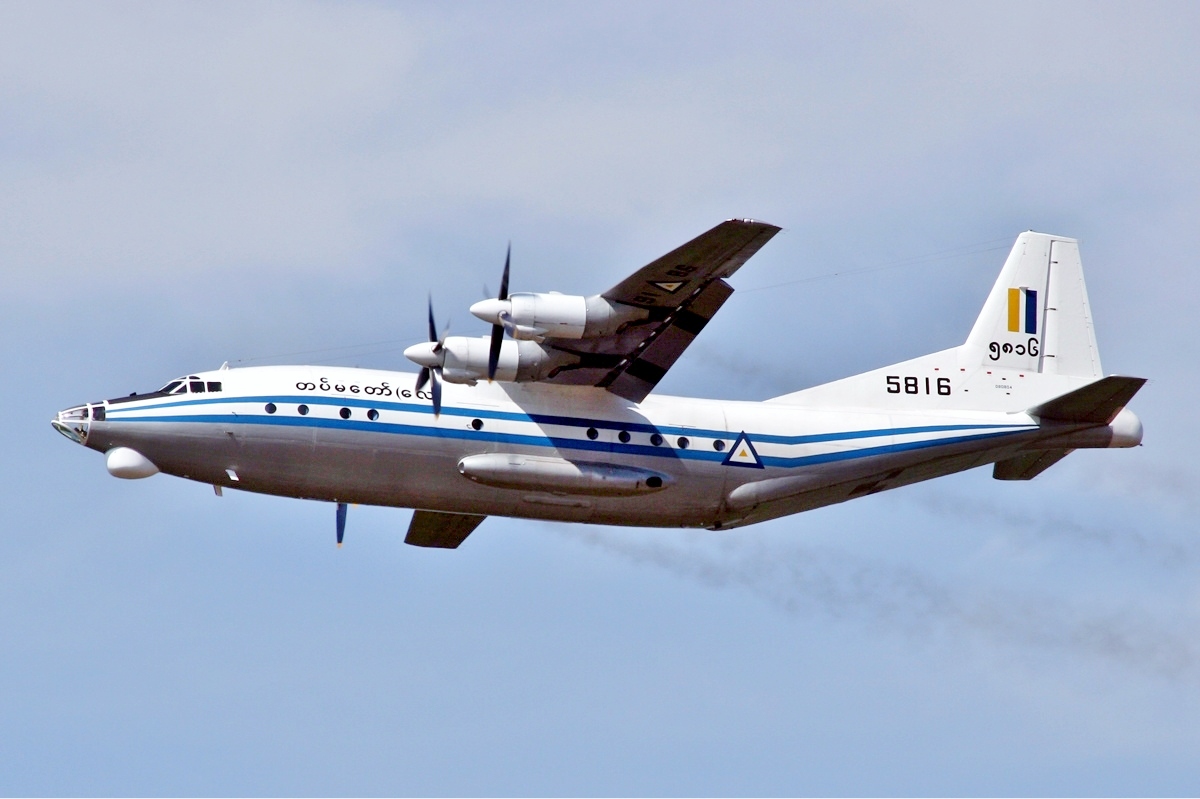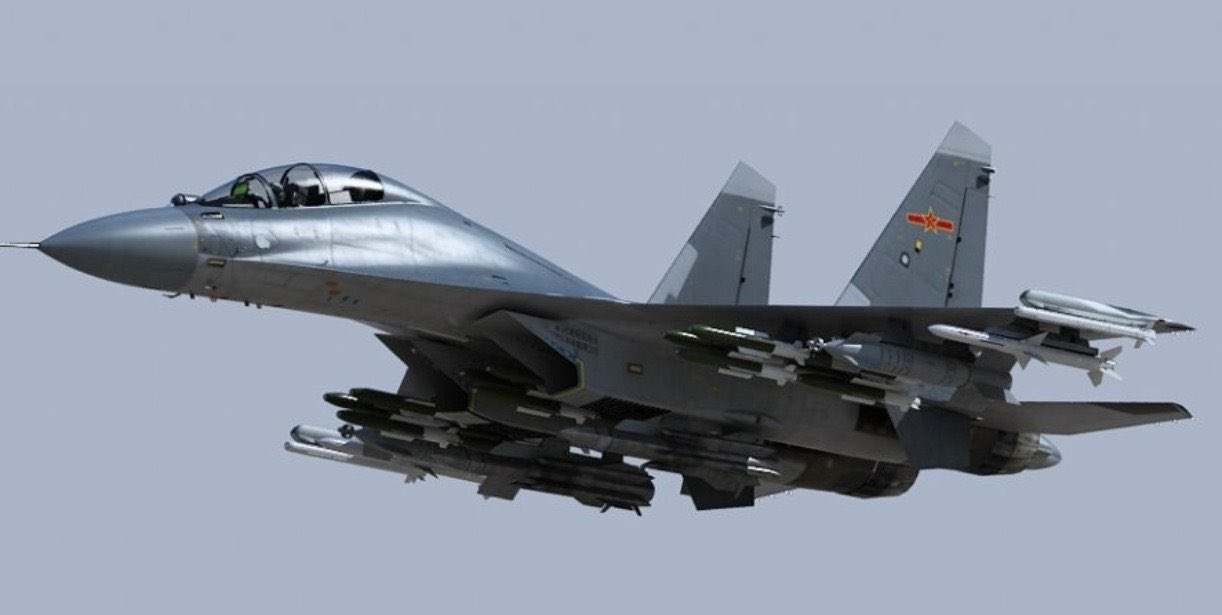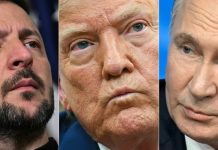At a time when Russia has launched a full-scale attack on Ukraine, there have been concerns about Taiwan’s fate in the face of Chinese aggression and its vow to reunite the ‘breakaway province’.
Taiwan and Ukraine share one common factor — both are backed by the US and its allies. Just hours after Russian President Vladimir Putin ordered military strikes on Ukraine, Taiwan’s Defense Ministry claimed that nine Chinese aircraft had entered its air defense identification zone (ADIZ).
Beijing considers Taiwan a breakaway province and has vowed to reunite it with the mainland, if necessary, by force.
Eight J-16 fighters and one Y-8 reconnaissance aircraft were involved in the mission on February 24, according to the ministry. The ministry also disclosed the aircraft’s flight paths, stating that they flew over an area to the northeast of the Taiwan-controlled Pratas Islands.

Taiwanese fighter jets were dispatched to warn Chinese planes, and air defense radars monitored the activities according to the ministry. The news comes a day after China stated that Taiwan is “not Ukraine” and has always been a part of China.
The Chinese reaction appears to have been prompted by Taiwanese President Tsai Ing-wen’s call for enhanced military vigilance in response to the Ukraine situation.
Taiwan has been monitoring the Ukraine situation with bated breath and fears that China could seize the opportunity to invade the island. Taipei has stated that it strongly condemns Russia’s aggression and will impose sanctions along with other democratic nations.
#Taiwan strongly condemns #Russia's invasion of #Ukraine. Our country joins the #US, #EU & other like-minded partners in sanctioning Russia. We urge an immediate cessation of military action & commencement of dialogue aimed at resolving disputes peacefully. #StandWithUkraine??
— 外交部 Ministry of Foreign Affairs, ROC (Taiwan) ?? (@MOFA_Taiwan) February 25, 2022
Despite the fact that no extraordinary moves by the Chinese military have been detected by Taipei, the administration has raised its alert level. China has never renounced the use of force to annex Taiwan, and it often opposes US weapons sales to the island.
All Eyes On The US?
Despite its modest military power, Taiwanese Foreign Minister Joseph Wu said this week that Taipei is working to expand on its “asymmetric defense”. He also highlighted the importance of US assistance in this vision.
“China will understand it will pay a very heavy price if it initiates conflict against Taiwan,” Wu said during a virtual session organized by Arizona State University’s McCain Institute for International Leadership.
He asked for sustained US backing of Taiwan through arms sales, military exchanges, sharing information, and freedom of navigation exercises in the Taiwan Strait in a discussion with former US Secretary of Defense Mark Esper.

Wu emphasized that China has invested heavily and updated its military, making it capable of attacking not only Taiwan but far beyond the first island chain. He also stated that Taiwan continues to be subjected to Chinese attempts to alter public opinion and undermine morale by persuading civilians that “democracy is doomed”.
Last year’s tactics included almost 1,000 Chinese People’s Liberation Army air missions toward Taiwan, as well as disinformation efforts and political infiltration, according to Wu.
On the other hand, Washington issued its latest Indo-Pacific strategy earlier this month, calling for increased engagement with regional partners. The Biden administration promised to concentrate more diplomatic and security resources in the Indo-Pacific region in the 12-page policy outline.
Washington will cooperate with allies both inside and outside the region to maintain peace and stability in the strait dividing the island from China, it said.
China’s Stand On Ukraine And Taiwan
During a news briefing on Thursday, Hua Chunying, China’s assistant foreign minister refused to call Russia’s attack an “invasion”. He was repeatedly questioned by reporters whether she would term Russia’s attacks an invasion, but she avoided answering with a yes or no.
“The U.S. has been fueling the flame, fanning up the flame, how do they want to put out the fire?” Hua responded to one reporter, appearing frustrated by the question. China has been receptive to Russian worries about NATO’s military threat, as both countries have portrayed a more united front in the wake of what they see as Western meddling in their domestic affairs and security risks.
Previously, when asked if there were any similarities between the situation in Ukraine and Taiwan, the Chinese foreign ministry was quick to point out that there were none.
I would like to emphasize that there is only one China, and Taiwan is an inalienable part of its territory. This is an indisputable historical and legal fact. The one-China principle is a universally-recognized norm governing international relations,” Foreign Ministry spokesman Wang Wenbin, Ministry of Foreign Affairs, said.
Beijing has so far advocated restraint and called for discussion. With its own ambitions and existing ties with Russia, China’s reaction to Ukraine will be a delicate balancing act, and its leadership will most likely exercise extreme caution.
- Contact the author at ashishmichel@gmail.com
- Follow EurAsian Times on Google News




